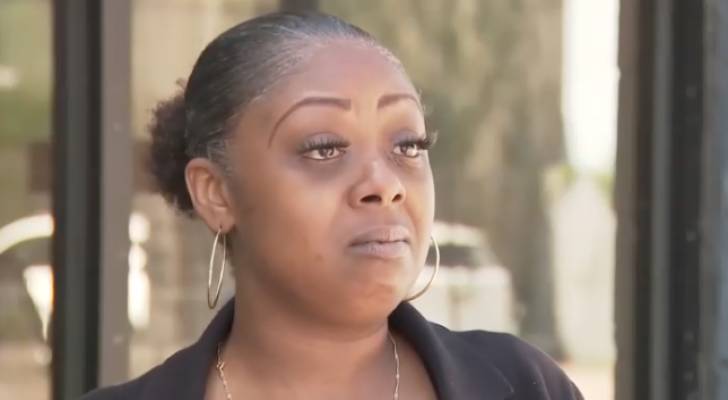
Claudette Merchant was doing what millions of parents do every day — grocery shopping for her kids. But when she got to the checkout at her local H-E-B, her Supplemental Nutrition Assistance Program (SNAP) card was declined.
She had received her monthly deposit — nearly $700 — just hours earlier, but by lunchtime, nearly all her funds were gone.
Don’t miss
- I’m 49 years old and have nothing saved for retirement — what should I do? Don’t panic. Here are 5 of the easiest ways you can catch up (and fast)
- You’re probably already overpaying for this 1 ‘must-have’ expense — and thanks to Trump’s tariffs, your monthly bill could soar even higher. Here’s how 2 minutes can protect your wallet right now
- Gain potential quarterly income through this $1B private real estate fund — even if you’re not a millionaire. Here’s how to get started with as little as $10
“I said, you got to be kidding me,” Merchant told KPRC 2. “$5 on my card. I thought he meant $500, but $5. That’s crazy.”
With just a few dollars left on her card and three kids to feed, the Houston single mom says every day has been a struggle.
"I’ve been scammed,” she told KPRC 2. “It’s hard for single parents, especially single mothers that don’t have help like they’re supposed to.”
Why can’t the funds be replaced?
Unfortunately, the SNAP funds cannot be replaced — even though they were taken without her permission through no fault of her own.
Merchant is among the many victims of “SNAP skimming,” a growing type of electronic theft in which criminals install hidden devices on card readers to steal card numbers and PINs. Once the information is cloned, they can wipe out an account in minutes.
Until recently, stolen SNAP funds could be reimbursed under a federal protection program — but that law expired on Dec. 20, 2024, and Congress has not renewed it. That means any benefits stolen after that date — including Merchant’s — are not eligible for replacement unless the state sets up its own replacement program. Texas has not.
“It sounds like you’re not getting that money back,” KPRC 2 reporter Gage Goulding told her.
“Nope. And that’s wrong, and that’s why it’s so much fraud — because no one’s doing nothing about it,” Merchant replied.
Merchant has since canceled her old card and ordered a new one, as advised by Texas Health and Human Services. But that doesn’t solve the larger issue: how to feed her children with almost no funds for the month.
Read more: Want an extra $1,300,000 when you retire? Dave Ramsey says this 7-step plan ‘works every single time’ to kill debt, get rich in America — and that ‘anyone’ can do it
How to protect your SNAP benefits — and what to do if you’re scammed
SNAP provides monthly food assistance to low-income households. In Texas, funds are loaded onto a Lone Star Card, which works like a debit card at grocery stores. Households can receive anywhere from roughly $300 to nearly $2,000 per month, depending on income and family size, according to Texas Health and Human Services.
However, as electronic theft rises, protecting those benefits has become a major concern.
Here are some ways SNAP recommends you protect your account — and what to do if you’re targeted.
Never share your PIN
State officials will never ask for your PIN, and neither should store clerks, friends or anyone outside your household. Only share your PIN with trusted adults who live in your household.
Be wary at checkout
Check card readers for loose parts or hidden devices often used for phishing — tug slightly to see if anything moves. If you see wires or if the card reader moves or comes apart, don’t use your card. When entering your PIN, use your hand or body to shield others from seeing it.
Change your PIN every month
Set a reminder to change your PIN each month. The USDA recommends changing it the day before your benefits are expected to be deposited. That way, if phishers have your current PIN, they won’t be able to access the funds.
Report fraud immediately
If your card is compromised, contact your local SNAP office right away. Cancel the card and request a new one. States can use their own funds to replace stolen benefits, so check in your area before assuming they won’t be replaced. Even if benefits can’t be reimbursed, reporting the incident helps officials track skimming trends and locations.
How to access food if your benefits are stolen
Start by contacting your local food bank, which may offer emergency groceries or prepared meals. Community organizations, churches and mutual aid groups can also provide short-term support.
If you’re on social media, look for “Buy Nothing,” “Food Not Bombs” or other neighborhood support groups where members often share food or supplies. These steps won’t replace the stolen funds, but they can help you get through a tough time while you explore your options.
What to read next
- Don’t have the cash to pay Uncle Sam in 2025? You may already be eligible for a ‘streamlined’ handshake with the IRS — here’s how it works and how it can potentially save you thousands
- Robert Kiyosaki warns of a ‘Greater Depression’ coming to the US — with millions of Americans going poor. But he says these 2 ‘easy-money’ assets will bring in ‘great wealth’. How to get in now
- Here are 5 ‘must have’ items that Americans (almost) always overpay for — and very quickly regret. How many are hurting you?
This article provides information only and should not be construed as advice. It is provided without warranty of any kind.